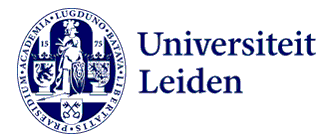The Common Access as Pro People Management of Natural Resources (An Analysis of Decision Number 3/PUU-VIII/2010 about Judicial Review of Law 27/2007)
DOI:
https://doi.org/10.31078/consrev216Keywords:
Coastal Areas and Small Islands, Concession Right on Coastal Waters, the Common Access, the 1945 Constitution, People EmpowermentAbstract
This paper aims to explore the new concept as an alternative management of natural resources (specifically Coastal Areas and Small Islands/CA-SI). In Decision Number 3/PUU-VIII/2010 (the Court Decision), the Constitutional Court uses the new concept as considerations to cancel the Concession Rights on Coastal Waters (CR-CW) as the mechanism of management of CA-SI in Law Number 27 Year 2007 about Management of Coastal Area and Small Islands (Law 27/2007). Some important questions in this paper are why did the Constitutional Court annul CR-CW in Law 27/2007? Whether the new concept offered in the Court Decision and consistent with 1945 Constitution? And how is the new concept offered consistent with people empowerment?
The revoke of CR-CW in Law 27/2007 is caused that the concept of concession is contrary to the norms of natural resources management in the 1945 Constitution and the spirit of people empowerment. The new concept offered in the Decision is the common access. In this concept of access, CA-SI is regarded as the common property with the rules from members of the community itself. The provisions to access CA-SI as the common property are also determined by agreements of the community itself. Management of CA-SI on the common access is in accordance with people empowerment. The consistency is shown by the relevancy of concept of common access to include three key issues of people empowerment (access, assets and collective capabilities).References
Cheater, Angela, 1999. “Power in the Postmodern Era”, in The Anthropology of Power: Empowerment and Disempowerment in Changing Structures, ed. Angela Chetaer, London and New York: Routledge.
Danaher, Geoff, Tony Schirato & Jen Webb, 2000. Understanding Foucault, London, Thousand Oaks and New Delhi: Sage Publication.
Etzioni, 1992. State And Civil Society, New York: Long Mann.
Foucault, Michael, 1980. Power/Knowledge: Selected Interviews & Other Writing 1972-1977, ed. Colin Gordon, New York: Pantheon Books.
Hidayat, Aceng. 2005. ‘Institutional Change At Local Level: How Gili Indah Villagers Build an Effective Local Governance of Coral Reef Management?’, Journal of Coastal Development, Volume 8, Number 2, February 2005: 123-154.
Manan, Bagir, 2004. Menyongsong Fajar Otonomi Daerah, Yogyakarta: Pusat Studi Fakultas Hukum UII.
Narayan, Deepa. 2002. Empowerment and Poverty Reduction, Washinton D.C.: the World Bank.
Ostrom, Elinor dan Schlager. 1996. “The Formation of Property Rights” in Rights to Nature, ed. Folke Hanna and Maler, Washington D.C: Island Press.
Ostrom, Elinor, 1992. Crafting Institutions for Self-Governing Irrigation System, San Fransisco: Institute for Contemporary Studies.
Ostrom, Elinor, 2000. ‘Private Property and Common Property Rights’, http://encyclo.findlaw.com/2000book.pdf, Accessed 15 April 2016.
Patton, Paul, 1987. “Michel Foucault” in Creating Culture, ed. Diane J. Austin-Bross, Sydney, London, Boston: Allen & Unwin.
Phillips, Rhonda, and Robert H. Pittman. 2009. “A framework for community and economic development,” in An Introduction To Community Development, ed. Rhonda Phillips and Robert H. Pittman, New York: Routledge.
Raharjo, Satjipto, 1979. Hukum dan Perubahan Sosial, Bandung: Penerbit Alumni.
The Blackwell Dictionary of Modern Social Thought. (2002). http://www.blackwellreference.com/public/tocnode?id=g9780631221647_chunk_g978063122164720_ss1-44. Accessed 19 November 2015.
































































